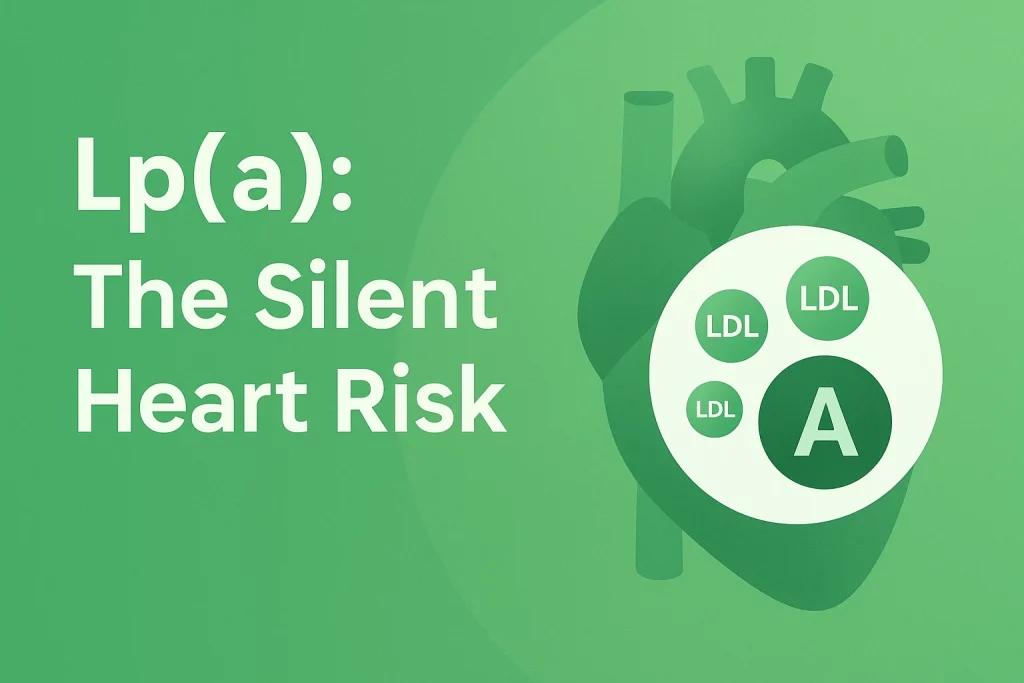
What Is Lp(a)?
Lipoprotein(a) — often shortened to Lp(a) — is a type of cholesterol particle in your blood. It’s similar to LDL (“bad”) cholesterol but has an extra protein attached called apolipoprotein(a). This makes it more dangerous because it can stick to artery walls, promote clotting, and cause inflammation.
While LDL cholesterol is influenced by diet and lifestyle, Lp(a) levels are almost entirely genetic. Around 1 in 5 people have high Lp(a), and most don’t even know it.
🔗 External source: Learn more from this Washington Post article that sparked growing awareness around Lp(a).
Why Is Lp(a) Dangerous?
Researchers have linked high Lp(a) to a significantly increased risk of:
- Heart attack
- Stroke
- Aortic valve disease
- Premature cardiovascular events
The scary part? Even people who eat well, exercise, and don’t smoke may still be at risk if they have high Lp(a).
Should You Get Tested for Lp(a)?
Most standard cholesterol panels don’t include Lp(a). It requires a separate blood test, which many doctors don’t order by default — but that’s changing.
You should ask your doctor about testing if you:
- Have a family history of early heart disease
- Have had a heart attack or stroke at a young age
- Have high LDL that doesn’t respond well to treatment
Can You Lower Lp(a)?
Currently, no FDA-approved medication exists specifically to lower Lp(a). However, clinical trials are underway for new treatments (like antisense therapies) that may offer hope.
Meanwhile, the best strategy is to:
- Control LDL cholesterol (e.g., with statins if needed)
- Avoid smoking
- Manage blood pressure and blood sugar
- Stay physically active
- Take your medications consistently and at the right time
🟢 Want to learn more about how timing your medication affects effectiveness?
Read this guide on the best times to take medication
What Role Can a Pill Reminder App Play?
If you’ve been prescribed medications for cholesterol, blood pressure, or other heart-related conditions, sticking to your treatment plan is critical — especially with hidden risks like Lp(a) in play.
Use a smart pill reminder like Pill Plan to stay consistent, log doses, and get refill alerts.
Final Thoughts
Lp(a) might be one of the most underdiagnosed risk factors in heart health today. But you’re not powerless. Talk to your doctor about testing, and take control of what you can — including consistent medication adherence, lifestyle choices, and awareness.

